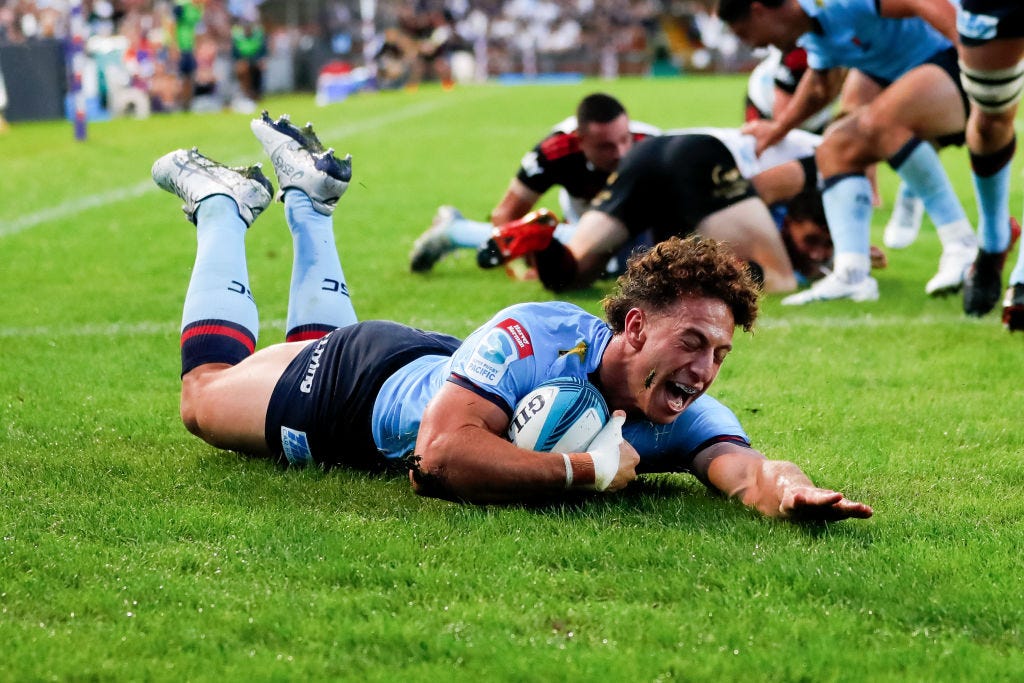The 'Tahs beat the Crusaders and other weird happenings
Warriors get me All Shook Up, and some terrific yarns from around the world.
With all the inevitability of a lineout drive, New Zealand’s Super Rugby clubs1 flew west to steamroller vastly inferior opposition.
They got the flying west part right. As for the rest - it hasn’t happened.
The Chiefs pipped the Reds; the Blues were fortunate to hold on against the fast-fini…
Keep reading with a 7-day free trial
Subscribe to The Bounce to keep reading this post and get 7 days of free access to the full post archives.




